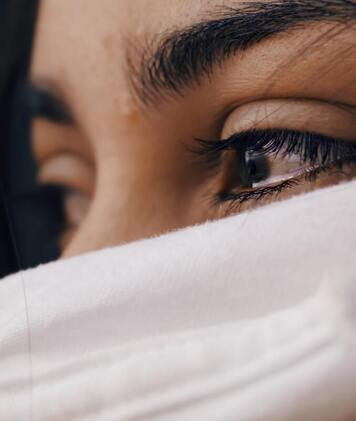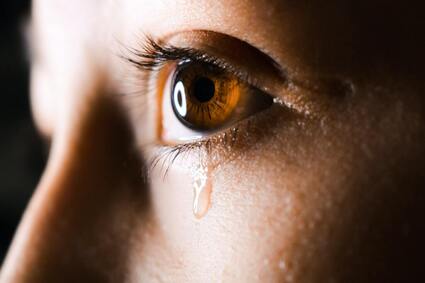|
While everyone has experienced sadness, not everyone has experienced depression. In fact, if you’ve never been depressed, chances are that you don’t have a real grasp on what living with this complex mental illness is like. Depression is insidious. It affects not only your mood, but also your ability to feel, think, and function. It blunts sensations of pleasure, closes off connectedness, stifles creativity, and, at its worst, shuts down hope. It also often causes deep emotional pain not only to the person experiencing it, but to that person’s close family and friends. Depression Statistics: Disturbing Trends, Helpful Treatment Unfortunately, there are plenty of people who know exactly what it means to be depressed. An estimated 17.3 million, or 7 percent, of adults in the United States had at least one major depressive episode in the past year, according to the National Institute of Mental Health, making it one of the most common mental illnesses in the United States.(1) What’s more, a recent report from Mental Health America, a nonprofit founded in 1909, offers startling statistics pertaining to one of depression's most disturbing symptoms: thoughts of suicide. According to its 2020 State of Mental Health in America report, suicidal ideation among adults increased from 3.77 percent in 2012 to 4.19 percent in 2017, the most recent year for which statistics are available.(2) That means more than 10.3 million adults in the United States are affected by negative thoughts or emotions. There is a bright side. Although there is no one-size-fits-all cure for depression, there are many effective treatment options, one of which is bound to help you heal if you’re struggling with the illness. This cannot be emphasized enough, given that roughly two-thirds of people living with depression do not receive the care they need, according to a report in the journal Neuropsychiatric Disease and Treatment, published online February 22, 2019.(3) Signs and Symptoms: How to Identify Depression If sadness alone isn’t a good gauge of depression, what is? According to the American Psychiatric Association’s current Diagnostic and Statistical Manual of Mental Disorders (DSM-5), which is the diagnostic guide used by most mental health professionals, if you’ve experienced at least five of the following symptoms most of the day, nearly every day, for at least two weeks, you may be diagnosed with major depressive disorder (MDD), also known as clinical depression.(4) Do you:
To be diagnosed with MDD, one of your symptoms must be a persistent low mood or a loss of interest or pleasure, the DSM-5 states. Your symptoms must also not be due to substance abuse or a medical condition, such as thyroid problems, a brain tumor, or a vitamin deficiency. Of course, it’s normal to have any or all of these symptoms temporarily (for hours or even days) from time to time. The difference with depression is that the symptoms persist and make it difficult to function normally. Important: If you suspect you have depression, or if you’re feeling troubled by your symptoms, have suicidal thoughts, just need to talk, want some advice, or need a referral for treatment, call the National Suicide Prevention Lifeline at 800-273-8255 or the National Substance Abuse and Mental Health Services Administration Helpline at 800-662-4357. Both are free and available 24/7, 365 days a year. What Are the Different Types of Depression? In addition to MDD there are several other kinds of depression, including:
 One reason depression can be hard to identify is that its signs can vary widely from person to person and sometimes be masked by atypical symptoms. For example, some people who are depressed may show it by acting disgruntled, resentful, or irritable. In fact, aggression — including outright acts of violence — can be indicative of “hidden” depression, according to a February 28, 2017, report in Psychiatric Times.(11) Depression masquerading as anger may seem surprising at first, but not when you consider that several underlying factors, including alcohol or substance abuse and childhood trauma, have been linked to both. Similarly, although it’s not clear why, a person who experiences anxiety is at high risk for developing depression, and vice versa. The National Alliance on Mental Illness reports that as many as 60 percent of people with anxiety will also have symptoms of depression; the same goes for people with depression having symptoms of anxiety.(12) Some researchers even suspect that depression and anxiety are, in fact, inexorably intertwined expressions of the same underlying psychological disorder.(13) Depression may also manifest psychosomatically, meaning that instead of presenting first and foremost as a mood disorder, the dominant symptom may be things like vague aches, dizziness, headaches, digestive problems, or back pain, according to the Journal of Clinical Psychiatry.(14) Complicating matters is that it’s often hard to know whether depression is causing the physical symptoms, or if the physical symptoms are causing depression. What Causes Depression? No one knows for sure why some people become depressed and others do not. As with other brain diseases, such as Alzheimer’s, the precise cause remains elusive. Depression can occur spontaneously, without any obvious cause. And it’s well documented that once you’ve had one depressive episode your risk of having another later in life increases. For example, a study in Psychological Medicine found that more than 13 percent of people who recover from their first episode of major depression go on to have another episode within five years; 23 percent within 10 years; and 42 percent within 20 years.(15) Psychiatrists today generally look at depression in “bio-psycho-social” terms, meaning that they see it as a complex disorder most likely triggered by overlapping biological, psychological, and social (also referred to as environmental) factors.(16) Among the potential contributors to depression are:
Depression and Gender: Is It Different in Men and Women? When it comes to depression, there is a distinct gender gap. Depression is nearly twice as common in women as in men, according to data from the National Center for Health Statistics.(24) Hormonal and other biological factors play a role in this disparity. After all, only women can have premenstrual or postpartum depression. The same is true of antenatal (or prenatal) depression — depression during pregnancy — which the American College of Obstetricians and Gynecologists estimates affect anywhere from 14 to 23 percent of pregnant women.(25) But women also have higher rates of seasonal affective disorder, depressive symptoms in bipolar disorder, and persistent depressive disorder, note Harvard Health experts.(26) The reasons for this are cause for speculation. Some researchers believe that environmental factors, such as the different stressors and expectations that society places on women, are an important factor. Others theorize that men and women actually have depression at similar rates, but that women are more likely to talk about their feelings and seek help. Depression Treatment: Lifestyle Changes, Talk Therapy, Antidepressants If you suspect that depression is interfering with your life, talking about what you’re experiencing and discussing treatment options with a medical professional is essential. As actress Taraji P. Henson, who describes her depression as “suffocating” darkness, recently explained in an interview with Self magazine, “When you’re quiet, things aren’t fixed. It gets worse.”(27) The good news is that there’s abundant evidence that people with depression who seek treatment will find significant relief from lifestyle changes, talk therapy (psychotherapy), medication, or a combination of all efforts, according to the Anxiety and Depression Association of America.(28) Lifestyle Changes for Depression Lifestyle changes, such as making art, journaling, exercising more, and practicing yoga or mindfulness, can also alleviate depression and the stress that can heighten it. Alternative treatments like massage, acupuncture, and light therapy may also help. Diet changes, too, can uplift your mood by reducing inflammation and helping to ensure your brain gets the nutrients it needs to function at its best. One randomized controlled study, published October 9, 2019, in the journal PLoS One, found that self-reported symptoms of depression dropped significantly in just three weeks in young adults who changed from a highly processed, high-carbohydrate diet to a Mediterranean diet focused on vegetables, whole grains, lean proteins, unsweetened dairy, nuts and seeds, olive oil, and the spices turmeric and cinnamon. In contrast, the depression scores didn’t budge in a control group of people who didn’t change their diet.(29)  Which Types of Talk Therapy Work Best for Depression? The Society of Clinical Psychology rates several types of psychotherapy as highly effective treatments for depression:(30)
What’s the Difference Between Grief and Depression? Given that the primary symptom associated with depression is sadness, it can be easy to think of grief or bereavement as depression. But grief is a natural response to specific experiences, such as the end of a relationship or the death of a loved one. While you might feel regret or remorse, and you might withdraw from usual activities if you are experiencing grief, you’re unlikely to feel the overwhelming sense of worthlessness, thoughts of self-harm or suicide, and other symptoms of depression. Another important difference is that in grief, painful feelings usually come in waves and are often mixed with positive memories. In some cases, however, grief and depression do coexist, or grief can trigger depression, according to experts writing in the journal American Family Physician.(31) Having a mental health professional help you distinguish between them can ensure you get the support you need. If you are experiencing depression and sadness, please email me or call (770) 203-9060 to set up an appointment. Together we will work to fashion an active program of change which lefts you out of the distress you are experiencing and places you on the pathway where you want to be. 1. Major Depression. National Institute of Mental Health. February 2019. 2. Reinert M, Nguyen T, Fritze D. The State of Mental Health in America 2020. Mental Health America. 2020. 3. Bailey RK, Mokonogho, J, Kumar A. Racial and Ethnic Differences in Depression: Current Perspectives. Neuropsychiatric Disease and Treatment. February 22, 2019. 4. What Is Depression? American Psychiatric Association. January 2017. 5. Persistent Depressive Disorder. Cleveland Clinic. March 3, 2015. 6. What Are Bipolar Disorders? American Psychiatric Association. January 2017. 7. Bipolar Disorder. National Institute of Mental Health. November 2017. 8. Seasonal Affective Disorder (SAD). Mayo Clinic. October 25, 2017. 9. Premenstrual Dysphoric Disorder (PMDD). U.S. Department of Health and Human Services Office of Women’s Health. March 16, 2018. 10. Postpartum Depression. American College of Obstetricians and Gynecologists. November 2019. 11. Krakowski M, Nolan K. Depressive Symptoms Associated With Aggression. Psychiatric Times. February 28, 2017. 12. Salcedo B. The Comorbidity of Anxiety and Depression. National Alliance on Mental Illness. January 19, 2018. 13. Hari J. Lost Connections: Uncovering the Real Causes of Depression — and the Unexpected Solutions.Bloomsbury. November 2018. 14. Trivedi M. The Link Between Depression and Physical Symptoms. Primary Care Companion to the Journal of Clinical Psychiatry. February 2004. 15. Hardeveld F, Spijker J, De Graaf R, et al. Recurrence of Major Depressive Disorder and Its Predictors in the General Population: Results From the Netherlands Mental Health Survey and Incidence Study (NEMESIS). Psychological Medicine. January 2013. 16. Pies RW. Debunking the Two Chemical Imbalance Myths, Again. Psychiatric Times. August 2, 2019. 17. Howard D, Adams M, McIntosh A, et al. Genome-Wide Meta-Analysis of Depression Identifies 102 Independent Variants and Highlights the Importance of the Prefrontal Brain Regions. Nature Neuroscience. February 2019. 18. What Causes Depression. Harvard Health. June 24, 2019. 19. Pariante CM. Why Are Depressed Patients Inflamed? A New Path to Personalized Treatment in Psychiatry. Psychiatric Times. May 31, 2018. 20. Social Determinants of Mental Health. World Health Organization. 2014. 21. Williams LM, Debattista C, Duchemin A-M, et al. Childhood Trauma Predicts Antidepressant Response in Adults With Major Depression: Data From the Randomized International Study to Predict Optimized Treatment for Depression. Translational Psychiatry. May 3, 2016. 22. TBI-Related Emergency Department Visits, Hospitalizations, and Deaths. Centers for Disease Control and Prevention. March 29, 2019. 23. Singh R, Mason S, Lecky F, Dawson J. Prevalence of Depression After TBI in a Prospective Cohort: The SHEFBIT Study. Brain Injury. November 30, 2017. 24. Francis HM, Stevenson RJ, Chambers JR, et al. A Brief Diet Intervention Can Reduce Symptoms of Depression in Young Adults — A Randomised Controlled Trial. PLoS One. October 9, 2019. 25. Brody DJ, Pratt LA, Hughes JP. Prevalence of Depression Among Adults Aged 20 and Over: United States, 2013–2016. Centers for Disease Control and Prevention. February 13, 2018. 26. Depression and Postpartum Depression: Resource Overview. American College of Obstetricians and Gynecologists. 27. Women and Depression. Harvard Mental Health Letter. May 2011. 28. Taraji P. Henson on Living With Depression and Anxiety. Self.com. December 3, 2019. 29. Salcedo B. Depression Treatment — It Works. Anxiety and Depression Association of America. 30. Francis H, Stevenson R, Chambers J, et al. A Brief Diet Intervention can Reduce Symptoms of Depression in Young Adults — A Randomized Controlled Trial. PLoS One. October 9, 2019. 31. Kavan MG, Barone EJ. Grief and Major Depression — Controversy Over Changes in DSM-5 Diagnostic Criteria. American Family Physician. November 15, 2014.
1 Comment
12/21/2021 02:44:33 am
I had no idea that feeling constant thoughts of worthlessness and sleep issues can signify that you're suffering a form of depression. I heard that my cousin has problems with his studies, especially chemistry. Maybe he should consider finding an expert that can diagnose his mental health when it gets worse.
Reply
Your comment will be posted after it is approved.
Leave a Reply. |
AuthorDORICE NEIR Archives
March 2024
Categories |


 RSS Feed
RSS Feed